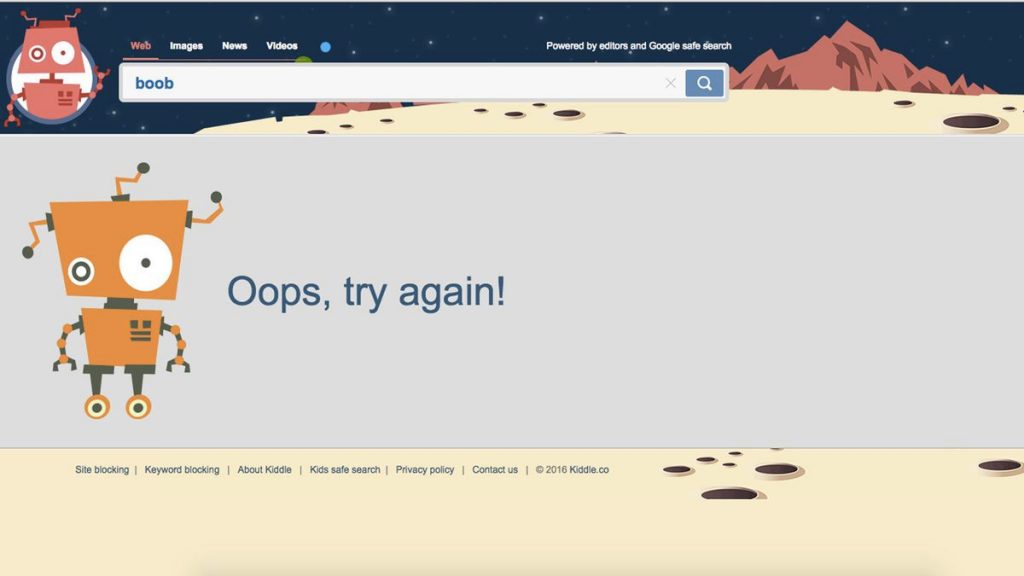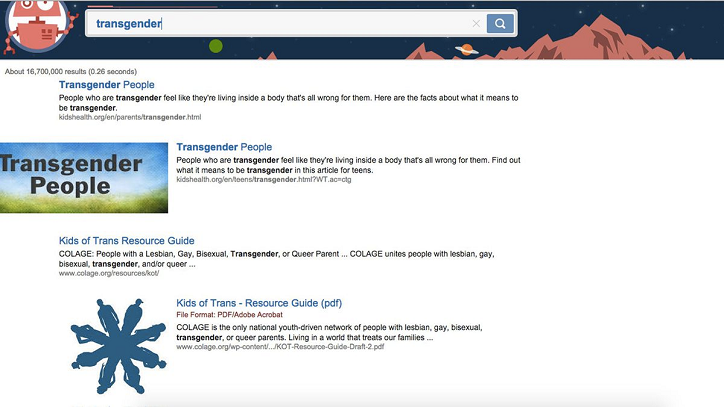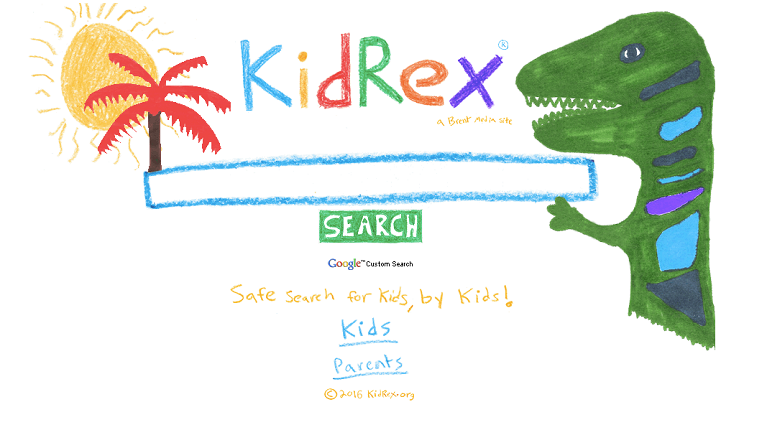Young children are using the internet to search and find content more than they ever have before—but we can all understand some of the trade-offs that come with this technological advancement.
Typical search engines (think Google, Bing, etc.) do not default to kid-friendly settings, and it takes a lot of adult monitoring to make sure that nothing is appearing and getting clicked on that isn’t age-appropriate.
Luckily in recent years, more and more safe search engines for kids have been emerging. Today we are going to talk about four of the most popular safe and kid friendly search engines, and why they should be on your radar if you are a parent, teacher, or child development professional.
1. Kiddle
Kiddle.co is a “safe visual search engine for kids” developed by Google. It has all of the power and resources of Google, with all of the safe search filters that parents and educators need.
In addition to traditional web and image searches, they also have “Kimages” or popular kid images, and “Kpedia”, a kid’s version of Wikipedia. In addition, there is also a video search feature, a news search feature, and resources for parents and educators.
The bottom toolbar also has more information on kids’ safe search and keyword blocking, making the platform a very transparent and understandable alternative search option.
What is really awesome about platforms like Kiddle is that there are very different approaches to how content is displayed, depending on the word. For example, typing in the word “boob” will give kids this error message:
We can understand how this is limiting (what if a kid is genuinely curious about body parts in a scientific or sociological way?) However, as pointed out by Mashable, not all terms have this “oops, try again” landing page.
In fact, when the word “transgender” is searched there are definitions, “kids of trans” resources, and other helpful information for kids that may have first hand experience with transgender communities, or may just be genuinely curious about the term and people who identify as trans.
2. Wacky Safe
The Microsoft version of a kid-oriented safe search engine is called Wacky Safe, and it comes in the form of an app that is specially made for PCs and Android phones. I’m sure you will not be surprised to find out that it is rated E for everyone.
It claims to provide an “ultra-safe” environment so that parents and educators can be worry-free about children surfing the web. As with other safe search sites for kids it blocks inappropriate content and images, uses strict keyword filtering, and allows for searching of information that is “kid-friendly.”
The app also blocks and filters harmful websites that would typically be blocked by parental controls.
3. KidRex
KidRex has to be one of my favorites—if for no other reason than because the home page contains a wonderfully drawn image of a T-rex.
This search engine, which is also powered by Google, is an independent organization that claims to be kid-centric with their “safe search for kids, by kids slogan.”
The organization (a division of Brent Media) was founded in 2016, and as you would expect, it addresses all of the parent/educator concerns that are associated with children searching online.
4. Safe Search Kids
You may think you’re experiencing deja vu at this point, but here is yet another available safe search engine that is geared toward kids and utilizes the power of…you guessed it…Google! (Seriously, can any company come out swinging and outshine Google in this area?).
Safe Search Kids is a download that is also available as an app, and can deliver filtered search results when your kids use the internet. This search tool automatically activates Google Safe Search—and ultimately helps to keep kids from landing on websites that contain inappropriate content.
Some extra considerations
It is fantastic that these tools are available and that there are increasingly more ways for parents, educators, and child development professionals to be proactive in what their kids are seeing online.
With that said, these search engines are not foolproof (ever) and there are some things to consider as a parent or educator who is letting their children absorb all of the wonderful information that is available online.
Blocking out keywords could potentially block out useful or educational content
There is no good solution to this, but by hyper-filtering the internet, you could also be filtering and screening out some valuable and educational information. Think human reproduction, cultural genocide, or other historical events that could easily be erased from a G-Rated search.
Ultimately, there is no replacement for parents and educators supervising and teaching children how to use the internet. These tools can help, but they are not the ONLY solution to enhance children’s experience online.
Who is hand-picking?
Safe search that is geared towards children has always had to answer the question: who picks the inappropriate keywords? Who decides what content is child-friendly?
It should be no surprise that not all parents agree on what is appropriate, let alone different cultures, religions, and other social positions.
In other words, what Google or other search engines feel is appropriate or inappropriate does not necessarily capture every parent’s wishes. This makes it all the more important for parents and educators to continue to be proactive, even with these powerful tools.
While these tools are incredibly powerful and can allow children to be much more curious and independent online, there is really no substitution for parent and teacher involvement when it comes to learning about the internet and the power of search engines.
By teaching kids HOW search engines work, what they can do, and the kind of content that is fully at their fingertips, kids can feel empowered to research and learn in ways they never had imagined!
What are your thoughts on these safe search engines for kids? Have you tried any as a parent or teacher? Let us know in the comments section below!
Amanda DiSilvestro is a writer for NoRiskSEO, a full service SEO agency, and a contributor to SEW. You can connect with Amanda on Twitter and LinkedIn, or check out her services at amandadisilvestro.com.





